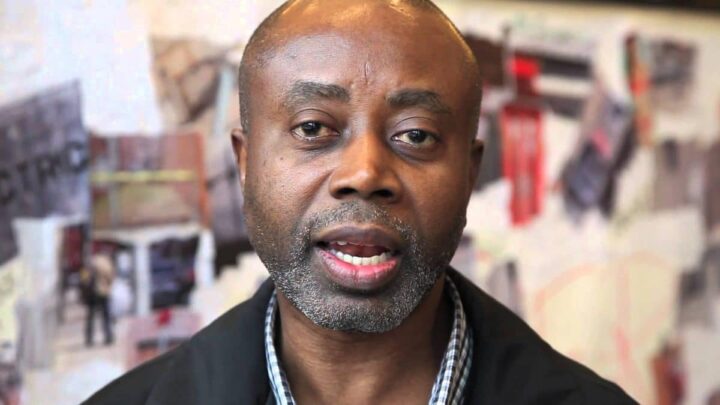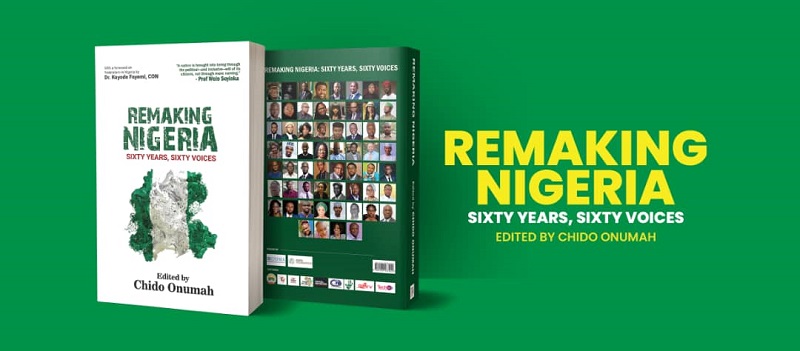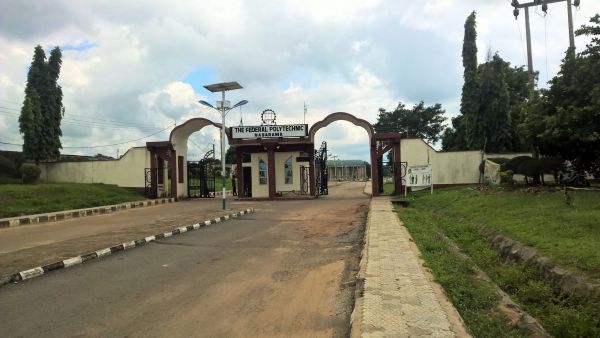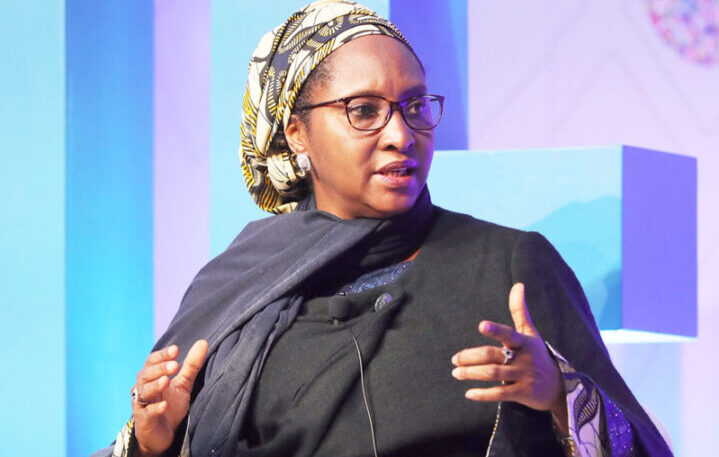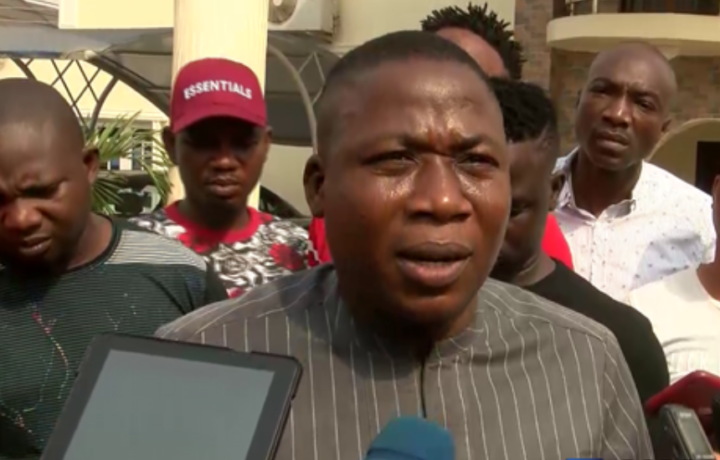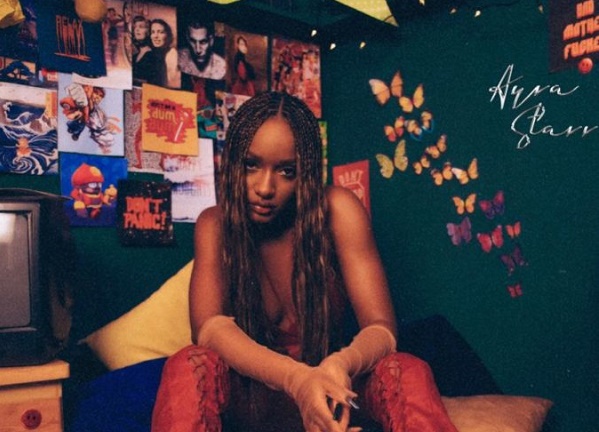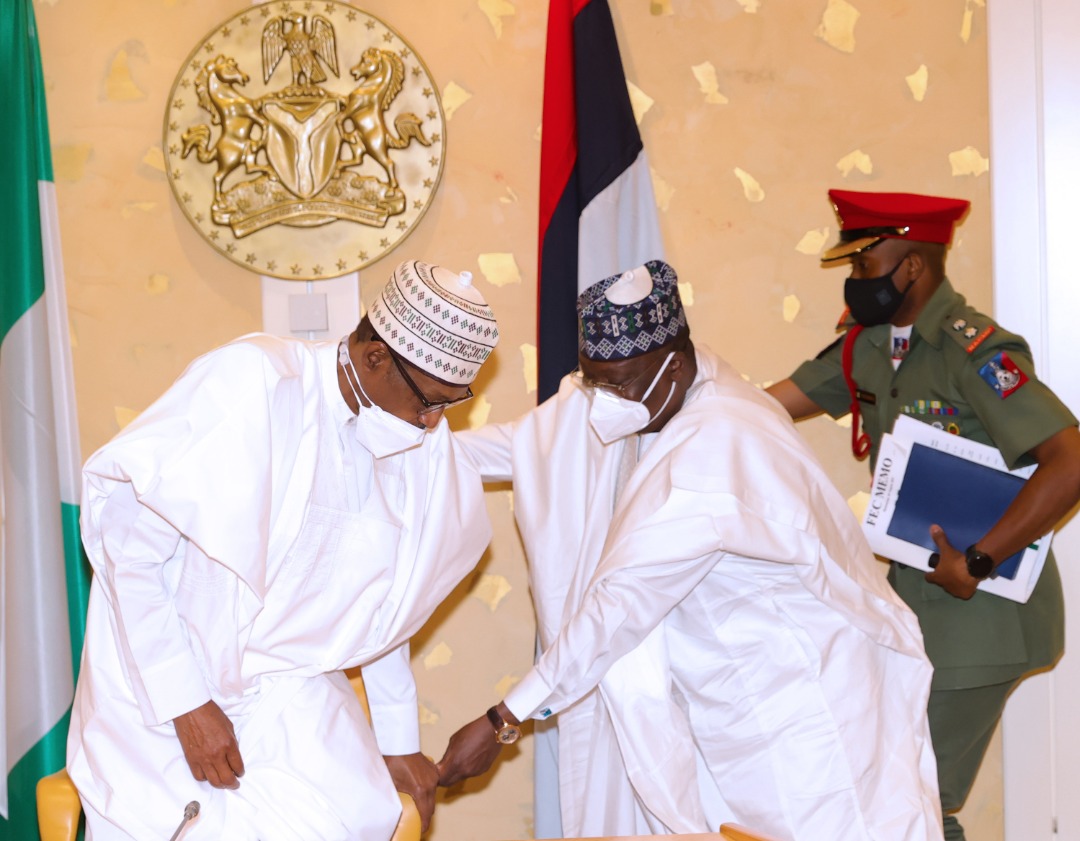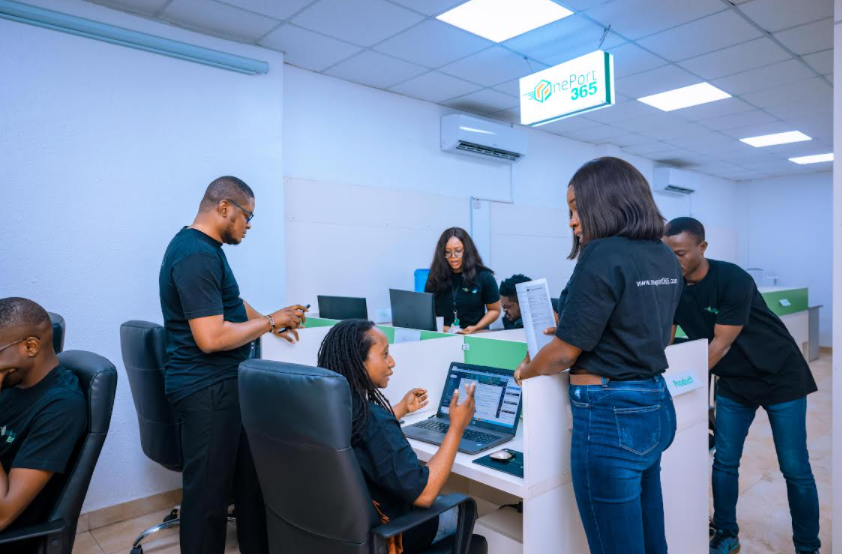When Chido Onumah, a seasoned journalist and rights activist, thought of producing the book — Remaking Nigeria: Sixty Years, Sixty Voices — he had the year 2020 in mind, which was the 60th anniversary of independence from British colonial rule in Nigeria. But as fate had it, the COVID-19 pandemic struck with its attendant challenges — and the book could not come to fruition. In spite of the challenges that put the project on hold, the book will now be launched on August 19. Onumah, the editor of the book, spoke with TheCable’s AYODELE OLUWAFEMI on the idea behind the book and the impact he hopes it will have on the country.
TheCable: You are the editor of the book, ‘Remaking Nigeria: Sixty Years, Sixty Voices’, what is the idea behind the book?
Onumah: Thank you for this opportunity. The idea behind the book ‘Remaking Nigeria’ is to reflect on 60 years of independence, and how far we have come as a nation. At independence, Nigeria was perceived as the potential giant of Africa, the country that was going to liberate, not just Africa but the black race because of its size and resources. Unfortunately for us, that hasn’t happened. We celebrated 60 years of independence in 2020. From 1999 till date, Nigeria has witnessed 21 years of uninterrupted democratic rule yet the country still ranks among the most corrupt, and the most impoverished.
We have over 10 million out-of-school children roaming the streets. All of these within the context of the vast human, material, and economic resources that the country has. So, we asked ourselves the question: are we where we should be 60 years after independence, looking at where we were at independence, among the big players at least on the African continent? Some of the countries that are among the developed nations in the world today were below Nigeria at independence. So what happened? That was the idea we wanted to focus on, to reflect on what happened.
Advertisement
TheCable: Who initiated the book?
Onumah: The idea was mine. This is not the first time we attempted this. Ten years ago, when Nigeria turned 50. Note, I am speaking now from last year (2020) because this is still part of the year-long celebration so I am using 2020 as the yardstick. When I say ten years ago, I am talking from 2020. We first thought of this ten years ago, when Nigeria celebrated 50 years of independence. We felt 50 — half a century of nationhood — was an opportunity to reflect on the same issue we are reflecting on today. We wanted to get a mix of Nigerians young and old —fifty of them — to reflect on the challenges facing the country and put forward solutions. Unfortunately, that idea didn’t get much traction.
Advertisement
It was tough getting people to commit to the process and there was the challenge of funds to produce the book. This kind of project requires a lot of resources, printing the book, doing the research, and all of that. We didn’t have the resources to pull it off. Thankfully, this time around, the Open Society Initiative for West Africa (OSIWA) and Ford Foundation responded positively when I shared the concept with them. They liked the idea and promised to support it. It was through their support that we managed to get this done.
So, we conceptualised this ten years ago, we wanted to do it (Nigeria at 50) but it didn’t happen. Then we tried again in 2014 to mark 100 years of the creation of Nigeria (amalgamation was in 1914). Unfortunately, that didn’t materialise. Then the opportunity of the diamond jubilee beckoned. We didn’t want to miss it. We reckoned that if we didn’t do it now, the next time we may have an opportunity for a big number event like this would be maybe Nigeria at 100 years and I don’t know how many of us would be around in the next 40 years or so. So, that basically was the push. Even though it was amid the pandemic, COVID-19 was ravaging the world and people were passing through a difficult time, we still managed to get it done. I have to give thanks to the supporters of this project and pay tribute to all those who contributed to the process.
TheCable: Considering the challenges you mentioned, how were you able to bring 60 people together for the book?
Advertisement
Onumah: Well, to answer your question, this was the tough part of the work, probably the toughest. I did the editing with the support of my colleagues, Godwin Onyeacholam, Richard Mammah, and Friday Ejilogo and we also got external support in terms of the editorial work but the toughest part of the work was first of all getting 60 writers to agree to contribute. We had certain criteria. First, we were looking for people who were born after the civil war. Then, we had to ensure that there was gender balance which we didn’t manage to achieve. It’s not because we didn’t try, though. Importantly, we wanted 60 young Nigerians. Then we had to look at the ethnic and geopolitical configuration to ensure we reflect our diversity.
This book is a real eye-opener. I learned a lot working on it and I hope Nigerians will learn from it. We have an abundance of talent across the country; men, women, young and old, Christians, Muslims. I had a small team that worked together with me to select contributors. When we couldn’t go far, we had to reach out to friends in the north, east, south, and west to help us reach out to people. We didn’t just want to throw it open. We wanted to ensure that we had the right calibre of people; we wanted to ensure that we had people who had an understanding of the concept of the project, what the project aims to achieve, and so on. So we had a long list of people, then we wrote to them.
Almost everybody that we wrote to was excited and enthusiastic about this project. Unfortunately, because of COVID-19, travel restrictions, health issues, and all kinds of challenges, not all of those we initially reached out to were able to make it and a lot of people in that group were female contributors. So when they dropped out, we had to fall back on other people to fill the gap. In the end, we are happy about the quality, the outcome of the work and the calibre of contributions, and the individuals that participated in the process.
Advertisement
TheCable: From the title, Remaking Nigeria, what does the book seek to achieve, for the readers and for the country?
Onumah: The title of the book ‘Remaking Nigeria’ is deliberate. Clearly, Nigeria is not working for Nigerians. At amalgamation in 1914, Nigeria was an idea of the colonialists. It was created in the image of the colonialists who had their reasons for bringing together different nationalities. At independence, Nigeria could have been three or four countries and it was also to a large extent the making of the colonialists. They still wanted to have a firm grip on the country post-independence. The expectation was that after independence, Nigerian leaders would have come together to decide on the kind of new nation they wanted to create. We needed to leave behind the baggage that we carried pre-independence, which was imposed on us by the British colonialists. We needed to recreate Nigeria in the image of the new Nigerians, the new inheritors of the post-colonial country.
Advertisement
Clearly, that didn’t happen and 60 years after independence, Nigeria is still a giant on her knees. We can’t provide basic things like electricity, health, and education for our citizens. So, the idea behind ‘Remaking Nigeria’ is to say this country can do better and what better way to frame that than to say, let’s remake Nigeria.
I believe in this country. I think this country has a future, not minding the corruption, injustice, poor leadership, agitations for seccession, and the mindless violence in different parts of the country. I am hopeful that Nigeria will survive the current crisis. But we shouldn’t take the country for granted. If we want to build a united and prosperous nation, we must realise that it requires a lot of work. So, the idea behind ‘Remaking Nigeria’ is to force the narrative in the direction of how we can recreate and remake Nigeria to work for all Nigerians.
Advertisement
How do we recreate Nigeria in the image of Nigerians whether we are Igbo, Hausa, Yoruba, Fulani, Ijaw? How do we create a country that reflects our diversity, a country that accommodates our differences, a country that takes into consideration the basic needs of its citizens? That can be done. I think the challenge we face in this country is that we have not had leaders who have an idea of what nationhood is all about, what governance is about because, at the end of the day, we are the same people whether you are Igbo, Yoruba, Fulani or Hausa. We bleed the same colour of blood. We are happy that the book is ready. We hope that it will be well received on Thursday, August 19, 2021, when we do the public presentation in Abuja. But it is not just a public presentation. We will use the occasion essentially to start a national conversation. It will be a national dialogue on the future of Nigeria, but using the book as a catalyst for that conversation.
TheCable: From 1960 till date, what do you think is/are the major cause(s) of Nigeria’s myriad of problems?
Advertisement
Onumah: I think the fundamental question is the crisis of nationhood. As Chinua Achebe noted in his book, ‘The Trouble with Nigeria’, there is nothing wrong with Nigerians as a people. Nigerians break the law here, but when they go to other countries, they respect the law because they know in Nigeria when you break the law, there are no consequences.
We used to have one of the best educational systems in the world. There was a time when foreign professors from Europe, America, and the Caribbean were in universities in Ibadan, Ife, Lagos, Nigeria, ABU, and so on. Now, as I speak to you, young Nigerian professionals; nurses, doctors, lawyers are leaving the country in droves to Ghana, South Africa, the UK, the US, Canada, and so on. And they excel when they get there.
Nigerians are heading medical departments in the universities overseas, we have vice-chancellors, and so on. So, there is basically nothing wrong with Nigerians. The problem I can point to is poor leadership and this unnecessary toxic and harmful rivalry between the ethnic groups that make up this country. We have taken it to the extent that people do not have faith in this country so people steal as much as they can because there is no sense of ownership. Some groups want to dominate others, some do not want to accommodate others. This rivalry among different ethnic nationalities has been taken to an extent that it has destroyed this sense of ownership. For us to make progress as a country, we need to restore that sense of collective ownership.
TheCable: What can you suggest the country should do to resolve its challenges?
Onumah: There has to be a national conversation and heart-to-heart discussion among the different groups that make up this country. We can’t go wrong with talking. The alternative to talking is conflict. We need to sit down as a family and say we may not all come from the same place, we may not have the same story, but this country is ours. We are the inheritors of this geopolitical space no matter how it came into being. This country has evolved from an amalgamation of essentially two countries to a mixture of different nationalities. Hundred years after, there have been intermarriages across the different divides, religious, ethnic, cultural, and so on. We now share a lot in common whether we like it or not.
People shouldn’t pretend that we don’t have things that bind us. There are Yorubas who were born in the north, who have lived all their lives in the north and don’t know any other place. If you go to Yola, in Adamawa state, and even Kano, there are Igbos whose parents moved to the north before the civil war and after the civil war. They were born there and grew up there and Hausa is their first language. There are Hausas who live in the south-east and speak Igbo with no other place to call home. So, let’s stop pretending that our differences are insurmountable. Unfortunately, our so-called leaders continue to feed on this imaginary division for their personal interest.
We should look at ourselves as Nigerians first before our ethnicity because that is what unites us; that is the passport we carry. If we accept that we are one people, then all we need to do is to define the concept of one Nigeria and what it means to be a Nigerian. Do we want Nigeria to be a land of injustice or a land of equality, a land of opportunities, a land of freedom, and a land of justice? So, whether you are Hausa, Igbo, Fulani, or Ijaw, you can enjoy equal opportunity; you will enjoy freedom, and your rights will be respected and protected within the laws of Nigeria. This is what we should focus on and the only way we can arrive at a meaningful resolution is to sit down at the table of brotherhood or nationhood and decide that we are Nigerians, and this is the kind of Nigeria we want to run. This is what ‘Remaking Nigeria’ is all about.
Add a comment
